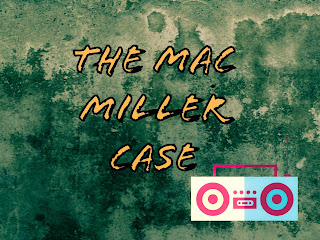Healthcare Organizations' Private Investments into Drug Courts: The Scam of the Century
Drug courts are stinky
bullshit. So are any other
treatment/diversion/reentry courts. What’s
the difference between these courts and probation or parole? Not much, except for the specific environment
that a person enters. In most cases, the
only difference is that the jurist and “social workers” act as a probation or
parole officer rather than an actual probation or parole officer being the
person who decides if an offender is being compliant. It’s the biggest scam ever. The scams are varied in these courts, but the
most obvious are: 1.) Healthcare organizations have teamed up with criminal
courts and thus generated a massive profit for themselves, 2.) The treatment
agendas are half-ass and barely work; which means that treatment is not the
most important part of the relationship with the courts and job retention and
reputations are some of the main aspects of such partnerships, 3.) Monetary and
other forms of contributions entice both jurists and “social workers” to collect
clients and send them to specific organizations because of their
donations/contributions to the courts and other partnerships, 4.) Elected officials use the contributions as
solidified votes, 5.) Due process in
these courts is sketchy, 6.) Many of the
clients in drug courts use government-based healthcare and the courts and
healthcare organizations leech onto the money spout of the state and federal
governments, and 7.) Overall, and to hammer the message into your brain, many
drug courts have policies that take advantage of investments to ensure their
worth and these investments are “treatment-based.” Similar to lobbyism.
I’ll narrow the scope of
the above-mentioned activities by using real world examples. For instance, Erie County, New York is home
to a plethora of diversion courts in its many cities, towns, and villages and
has only a handful of treatment organizations in the immediate area. Naturally, local programs use the available
resources to reach a desired goal – in this case it would be drug treatment and
not administering conventional criminal justice applications. The healthcare organizations specialize in
this type of treatment, or they suggest that they do. Since healthcare organizations require revenue
to function, they have to find ways to acquire capital. Healthcare organizations, as well as other
industries, in Erie County, New York use systematic processes, such as drug
courts and mandated drug treatment, as income utilities in order to retain
occupations and to secure the worth and reputation of the treatment organization
and its relationships (with the courts).
This is done by supplying clients to both drug courts and healthcare
organizations and delivering other investments into the drug court scam. Not too long ago, Horizon Health Services,
which is like the Starbucks of drug treatment in Erie County, New York, donated
monies to the Town of Amherst Drug Court (and other diversion courts). The reason the Town of Amherst Drug Court is
mentioned is because the infamous and former justice, Mark G. Farrell, was
well-known for sending offenders in drug court to lengthy participation in inpatient and outpatient treatment at Horizon Health Services (which still goes on today, but with a different judge in Amherst). At one point, Horizon Health Services wanted
to expand their inpatient treatment facility (which was eventually completed
and is currently being operated) and was having trouble finding the necessary
finances to complete such a rigorous project.
So, who did they turn to? Of
course, their old pal Judge Farrell and his drug court system, which was
employed with people from Horizon Health Services. A significant amount of money was given by
the Amherst Drug Court to confirm the construction of this new private minimum
security jail – I mean drug treatment facility.
Where did the revenue (people) come from to maintain this new
facility? The answer is the Town of
Amherst Drug Court and other diversion courts that have established relations
with Horizon Health Services. Where else
would the clients come from? This local
example verifies the seven scams that are previously mentioned.
If you disagree and think
that treatment and additional legal interventions are the primary objectives of
these courts, healthcare organizations, and, most importantly, the individuals
who work within these settings, then why do they (the places and people involved
in drug courts and treatment organizations) not work together to provide
preemptive approaches for society so that social and personal distresses cease
to exist? The point being is that they (drug court and treatment people) wait till after a person has been arrested
and threatened with jail/prison or already is, or has been, incarcerated. Treatment?
Where were the “social workers” before a person did something that
required criminal justice intervention?
It’s all about capital, occupational retention, and social
reputations. Money, jobs, and respect. This is an example of how private investments
by healthcare organizations are long term goal-oriented and not only financial
endeavors – the respect aspect. Drug
courts and healthcare organizations have made a living off of tax funded grants
and donations from each other; which includes the investment of clients –
people. Success cases my ass. How many people actually leave a drug court
and are cured of whatever vices they have or have had? Drug courts are a fuckin’ scam and so are treatment
organizations that suck the teat of these horrific ensembles of diversionary
tactics by the criminal justice system.
"People, places, and things."
"People, places, and things."


Comments
Post a Comment